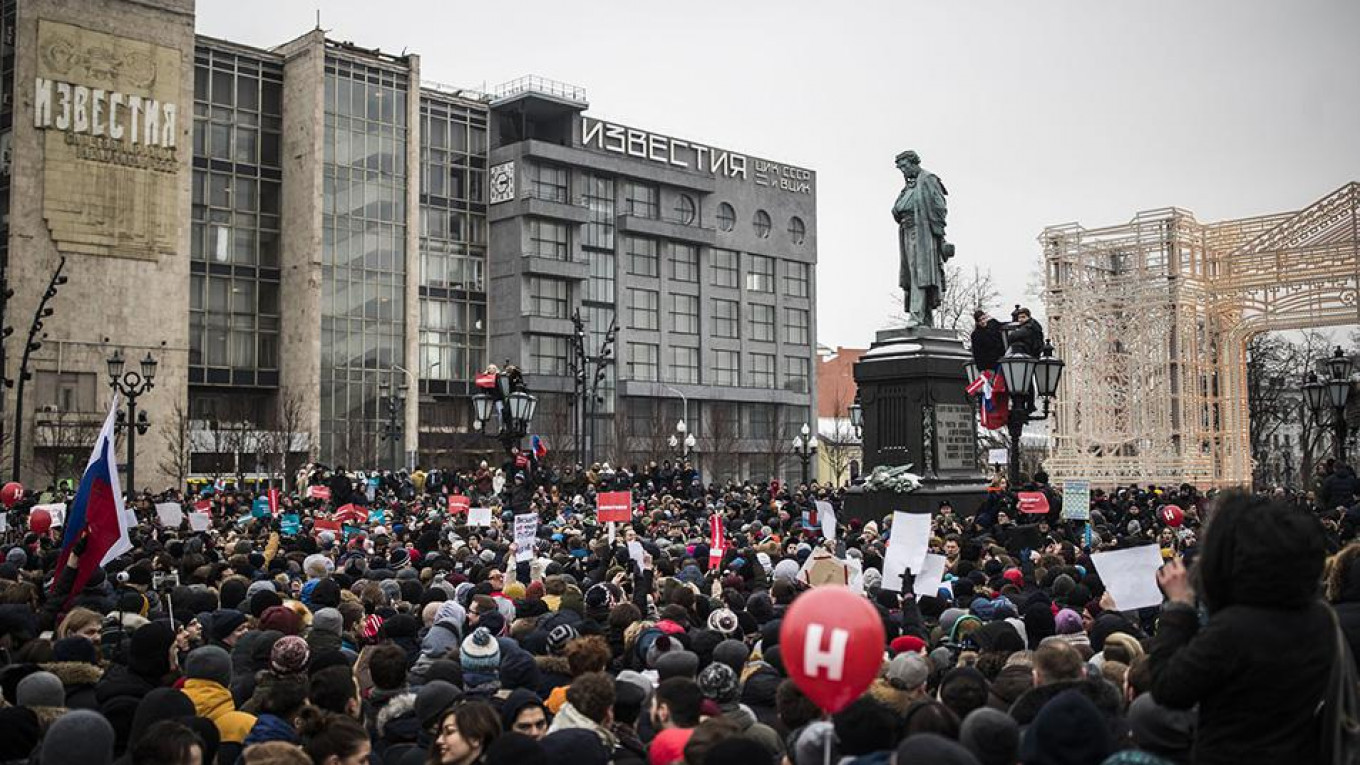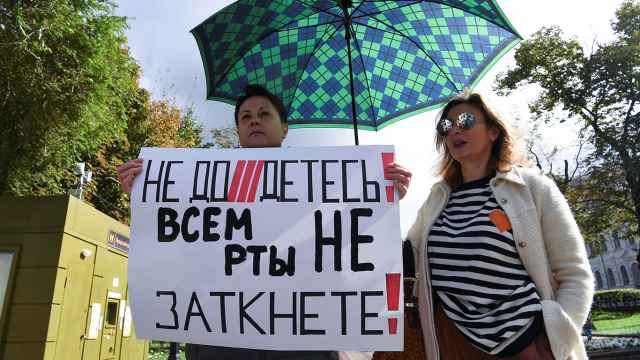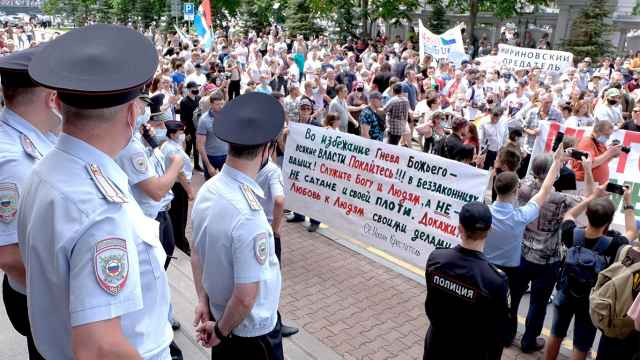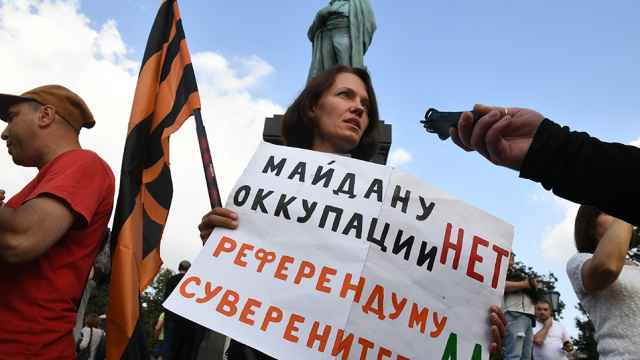An overwhelming majority of Russians polled by the independent Levada Center have said that they are unwilling to take part in political protests.
Mass political protests are unlikely to break out in the next year, largely due to President Vladimir Putin’s high approval rating, according to an influential Minchenko Consulting Group report released this month. The report was published after opposition leader Alexei Navalny called for nationwide protests on May 5, two days ahead of President Vladimir Putin’s inauguration.
Eighty-six percent of Russians surveyed by Levada late last month said they would not participate in political protests, against 8 percent who said they would.
Another 88 percent said they have not noticed any protests taking place in their town or district over the past several months.
“The polls most likely indicate that people don’t see any protests, while local demonstrations simply remain unnoticed by the majority,” Levada sociologist Denis Volkov told the RBC business portal on Monday.
Referring to protests after the deadly mall fire in Kemerovo and anti-landfill demonstrations outside Moscow, Volkov said that “people are more likely to seek answers from the authorities than make political demands.”
“There are problems, but there is no inclination to blame the central government, especially if the authorities try to respond and at least partially satisfy the demands of citizens,” he was cited as saying.
The results track with past Levada surveys, which found that four-fifths of Russians would not have protested the March 2018 presidential elections, while just one-third of Muscovites who voted against a controversial housing demolition program said they would participate in street protests.
The latest survey was conducted among 1,600 Russians in 52 Russian regions between March 23 and March 27.
A Message from The Moscow Times:
Dear readers,
We are facing unprecedented challenges. Russia's Prosecutor General's Office has designated The Moscow Times as an "undesirable" organization, criminalizing our work and putting our staff at risk of prosecution. This follows our earlier unjust labeling as a "foreign agent."
These actions are direct attempts to silence independent journalism in Russia. The authorities claim our work "discredits the decisions of the Russian leadership." We see things differently: we strive to provide accurate, unbiased reporting on Russia.
We, the journalists of The Moscow Times, refuse to be silenced. But to continue our work, we need your help.
Your support, no matter how small, makes a world of difference. If you can, please support us monthly starting from just $2. It's quick to set up, and every contribution makes a significant impact.
By supporting The Moscow Times, you're defending open, independent journalism in the face of repression. Thank you for standing with us.
Remind me later.






